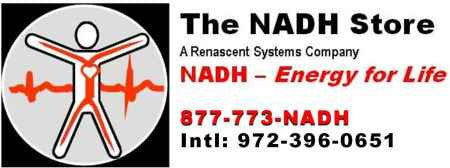Depression - NADH is a successful, natural anti depressant
 Summary: Great news, 93% of clinically tested depression patients exhibited (an up to 44%) positive improvements when taking NADH. These test results are from a clinical study of 205 patients -- suffering from depression. The 205 patients had varying degrees of depression symptoms. Each patient in the clinical trial was given 10mg of NADH daily (The actual study results are provided in the link below). The NADH depression treatments were monitored for 310 days. Some depression patients showed improvements in as little as 6 days, while other patients took a lot longer. The clinical study's results validated that 93% of the patients suffering from depression reported positive improvements in their condition when taking a daily NADH nutritional supplement.
Summary: Great news, 93% of clinically tested depression patients exhibited (an up to 44%) positive improvements when taking NADH. These test results are from a clinical study of 205 patients -- suffering from depression. The 205 patients had varying degrees of depression symptoms. Each patient in the clinical trial was given 10mg of NADH daily (The actual study results are provided in the link below). The NADH depression treatments were monitored for 310 days. Some depression patients showed improvements in as little as 6 days, while other patients took a lot longer. The clinical study's results validated that 93% of the patients suffering from depression reported positive improvements in their condition when taking a daily NADH nutritional supplement.
The Doctors who performed the study stated: "Not all depressions are the same; using a higher daily dosage would have provided better clinical trial results" The current recommendation for depression patients is to take a 20mg NADH daily dosage to experience the positive improvements similar to those in the study. Depending on the type of depression, the depression symptom severity, and the length of time since their first diagnosis, it may take from a few days to several months to experience the positive effects of NADH. NADH has no side effects, and is safe to take with any other anti-depressant medications.
Clinical Study Publications (click on the link to download):

Clinical Study Finds a 93% Success Rate when taking NADH as a Anti Depressant
 Video Section:
Video Section:
Anti-depressant NADH is Used to Treat 205 Depression patients
Dr Birkmayer is making the presentation [01:45]
The Full Text of "Depression - NADH a successful anti depressant"
(This Full Text section may repeat video(s) & clinical study publications found in the Summary)
The Clinical Testing:
Since the mid-eighties, NADH has been used to treat many thousands of patients suffering from many different types of chronic and degenerative diseases. The majority of these NADH treatments were conducted in Europe, and not in the US. During these degenerative disease treatments, attention was given to treating patients with depressive symptoms. "We have learned there are many different types of physiological depressions with varying degrees of depressive symptoms." Testing proved successful when treating patients with depression. To validate success, a clinical study was started with 205 patients suffering from depression. The clinical study proved to be a success. The results proved NADH has a direct, positive impact on 93% of the patients suffering from depression symptoms. According to the Doctor managing the test, the NADH dosage should have been higher during the depression clinical trial. The trail results stated: "To improve on the positive results for the relief of depression symptoms, a depression patient should take 20mg of NADH daily." The depression patient can take NADH while they are taking their other anti-depressant medications. NADH does NOT interfere, nor have any negative side effects when taken with other anti-depressant medications (i.e., Prozac) or any of the other popular anti-depressant medication. (The actual depression clinical study is available from the link below.)
The clinical study document is technical in nature, somewhat difficult to read, and is usually read by a doctor or other healthcare professional. We recommend taking the study to your doctor discuss the results. Mother Nature uses NADH to provide relief from depression.
NADH: A Background
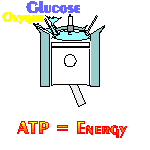 The NADH depression treatment comes from a co-enzyme called NADH or nicotinamide adenine dinucleotide with the ‘H’ standing for hydrogen. What makes NADH promising is Mother Nature uses NADH to provide relief from depression. NADH creates ATP life's energy used to power all living things. (i.e., brain functions, memory recall, concentration, decision making, muscle movements, heart beats, etc.) (For more information about ATP, see this website's section called ATP Energy) ATP energy creation takes place in a process called "cellular respiration." Cellular respiration is not breathing. Cellular respiration works like a car engine, where fuel and air come together to create power. Cellular respiration is a cellular engine. Within the cellular respiration engine, cells bring glucose (the fuel) and oxygen (the air) together, and with the spark of NADH (the spark plug) creates ATP life's energy.
The NADH depression treatment comes from a co-enzyme called NADH or nicotinamide adenine dinucleotide with the ‘H’ standing for hydrogen. What makes NADH promising is Mother Nature uses NADH to provide relief from depression. NADH creates ATP life's energy used to power all living things. (i.e., brain functions, memory recall, concentration, decision making, muscle movements, heart beats, etc.) (For more information about ATP, see this website's section called ATP Energy) ATP energy creation takes place in a process called "cellular respiration." Cellular respiration is not breathing. Cellular respiration works like a car engine, where fuel and air come together to create power. Cellular respiration is a cellular engine. Within the cellular respiration engine, cells bring glucose (the fuel) and oxygen (the air) together, and with the spark of NADH (the spark plug) creates ATP life's energy.
Science has successfully reproduced the NADH co-enzyme in a stabilize form. For more information about Mother Nature's production of ATP from NADH, see this website’s section called The Guided Tour.
The Doctors who have tested NADH on patients have stated:
- NADH is a safe, natural compound that has shown much promise with patients in Europe.
- Much more extensive research is needed.
- The clinical trial for the treatment of depression symptoms in patients is a significant step, down a long road to investigate the many potential benefits of this natural co-enzyme called NADH.
NADH is a co-enzyme. The American Heritage Dictionary defines a co-enzyme as:
- a non-protein organic substance that usually contains a vitamin or mineral and combines with a specific protein, to form an active enzyme system
NADH is not a drug, not a stimulant, and is non-toxic even in very large dosages. Example: NADH has been tested for 26 weeks at 1,000mg daily with no negative side-effects. Because NADH is already found within every human cell, NADH can safely be taken with any anti-depressant medication or any other medication. After extensive human trial safety testing, it was proven NADH does not have any negative side effects and no adverse drug interactions. See this website’s section called Safety First for more information.
The most important thing to remember about the NADH, is that NADH is found in every human cell, and:
- NADH increases the levels of ATP energy. The more NADH a cell has -- the more ATP a cell produces. NADH increases cell longevity.
- NADH is a powerful antioxidant, and a scavenger of free radicals. According to Dr. Passwater, "NADH may just be the most powerful antioxidant."
- NADH is the active ingredient in cellular DNA repair and in the repairing cell tissue. NADH repairs damaged cells.
- NADH stimulates and enhances the immune system.
- NADH enhances the production of dopamine, a very important brain chemical, also known as a neurotransmitter. Because of this NADH has been called Mother Nature's anti-depressant.
- NADH increases the bio-availability of nitric oxide, known to provide increased blood flow, oxygen delivery, glucose uptake, muscle velocity, power output, and muscle growth
DEPRESSION: The Illness:
Depression is a mood disorder that causes a persistent feeling of sadness and loss of interest. It is also called 1) major depression, 2) major depressive disorder or 3) clinical depression. Depression affects how a person feels, thinks and behaves. Depression can lead to a variety of emotional and physical problems. A person with depression may have trouble doing normal day-to-day activities. Depression may make a person feel as if life isn't worth living.
Depression is more than just a bout of "the blues". Depression isn't a weakness, nor is it something that you can simply "snap out of". Depression may require long-term treatment. But don't be discouraged. Most people with depression feel better with medication, psychological counseling and/or both.
Although depression may occur only one time during a person's life, usually people will have multiple depression episodes. During these episodes, depressive symptoms will occur throughout most of the day. These symptoms may include:
- Feelings of sadness, emptiness or unhappiness
- Angry outbursts, irritability or frustration, even over small matters
- Loss of interest or pleasure in normal activities, such as sex
- Sleep disturbances, including insomnia or sleeping too much
- Tiredness and lack of energy, even small tasks take great effort
- Changes in appetite. Depression often reduces appetite and causes weight loss. But depression can also do the opposite and cause a weight gain and a cravings for food.
- Anxiety, agitation or restlessness. (Like excessive worrying, pacing, hand-wringing or an inability to sit still)
- Slowed thinking, speaking and body movements
- Feelings of worthlessness or guilt, fixating on past failures or blaming oneself for things that were not their fault or responsibility
- Trouble thinking, concentrating, making decisions and memory recall
- Frequent thoughts of death, with suicidal thoughts, or suicide attempts
- Unexplained physical problems, such as back pain, or headaches, etc.
For some, depression symptoms are so severe that it is obvious something is wrong. Other people feel generally miserable or unhappy without really knowing "why?"
There are many different types of depressions with varying types of depressive symptoms. Depression is personal. and as such depression affects each person in different ways. To clarify the type of depression a person has, a doctor may add information to further refine the depression diagnosis. This is called a depression "specifier." A depression "specifier" will have depressive symptoms with with specific features. For example:
- Anxious distress: This is unusual restlessness or worry about a possible future events or the loss of control
- Mixed features: This is simultaneous depression with mania. This includes elevated self-esteem, talking too much, and racing thoughts and ideas
- Melancholic features: This is a severe depression with a profound lack of response to something that use to bring pleasure. It is associated with early morning awakening, and a worsening mood in the late morning. It includes significant changes in appetite, and feelings of guilt, agitation and sluggishness.
- Atypical features: This is an atypical depression. Symptoms include cheering happy events, increased appetite, little to no need for sleep, a sensitivity to rejection, and a heavy feeling in the person's arms or legs
- Psychotic features: This depression is accompanied by delusions or hallucinations. It may involve themes of personal inadequacy or negative themes
- Catatonia: This includes motor activity that involves either uncontrollable and purposeless movements or fixed and inflexible posture.
- Peripartum onset: This occurs during pregnancy or in the weeks or months after pregnancy delivery (postpartum)
- Seasonal pattern: This depression is related to changes in seasons and diminished exposure to sunlight.
DEPRESSION: Who Will Be Effected?
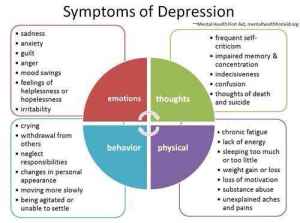
Most depressions begin in the teens, 20s or 30s, but depression can happen at any age. More women, than men are diagnosed with depression, but this may be due (in part) because a woman is more likely to seek a Doctor's help than a man. The symptoms of depression occur in people of all ages: children, teens and adults. Common symptoms of depression in children and teens are:
- In younger children, symptoms of depression may include sadness, irritability, worry, aches and pains, refusing to go to school, or being underweight.
- In teens, symptoms may include sadness, irritability, feeling negative and worthless, anger, poor performance or poor attendance at school. A feeling of being misunderstood or extremely sensitive to criticism. Teen depression may include using drugs or alcohol, eating or sleeping too much, self-harm, loss of interest in normal activities, and avoidance of social interaction.
- Depression may occur with other mental health conditions, such as anxiety, eating disorders, substance abuse or attention-deficit / hyperactivity disorder (ADHD).
Depression symptoms in older adults is NOT a normal part of growing older. Depression should never be taken lightly. Unfortunately, depression often goes un-diagnosed and untreated in older adults. Depression also causes older adults to feel reluctant to seek help. Symptoms of older adult depression may be less obvious. It may include:
- Memory difficulties or personality changes
- Fatigue, loss of appetite, sleep problems, aches or loss of interest in sex, which are not caused by a medical condition or medication
- Often wanting to stay at home, rather than going out to socialize or doing new things
- Suicidal thoughts or feelings (especially in older men)
DEPRESSION: Diagnosis & Current Treatment:
There are tests that could help rule out the cause of the depressive symptoms. These diagnostic exams include:
- Physical exam. A doctor may do a physical exam and ask in-depth questions about the person's health. In some cases, depression may be linked to an underlying physical health problem.
- Lab tests. A doctor may do a blood test called a complete blood count (CBC) or test a person's thyroid to make sure it's functioning properly. There are many other lab tests for depression that are not listed here.
- Psychological evaluation. To check for signs of depression, a doctor or mental health provider may ask about the person's symptoms, thoughts, feelings and behavior patterns. A doctor may have the person fill out a questionnaire to help answer these questions.
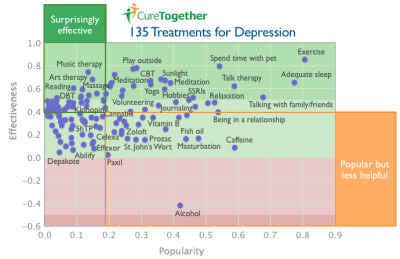 There are 135 known treatments for depression. Notice in this chart, NADH is not listed as a treatment for depression. Many doctors and healthcare professionals are unaware that NADH is a successful anti-depressant and is used as a depression treatment. NADH is Mother Nature's anti-depressant because NADH enhances the production of a brain chemical called "dopamine."
There are 135 known treatments for depression. Notice in this chart, NADH is not listed as a treatment for depression. Many doctors and healthcare professionals are unaware that NADH is a successful anti-depressant and is used as a depression treatment. NADH is Mother Nature's anti-depressant because NADH enhances the production of a brain chemical called "dopamine."
To be diagnosed with depression, a person must meet the symptom criteria in the Diagnostic and Statistical Manual of Mental Disorders (DSM), published by the American Psychiatric Association. This manual is used by mental health professionals to diagnose mental conditions. It is also used by insurance companies to reimburse for depression treatment. To be diagnosed with depression, a person must have five or more of the following symptoms over a two-week period, most of the day, nearly every day. At least one of the symptoms must be either a depressed mood or a loss of interest or pleasure. Other symptoms include:
- Depressed mood, such as feeling sad, empty or tearful (in children and teens, depressed mood can appear as constant irritability)
- Significantly diminished interest or feeling no pleasure in activities
- Significant weight loss when the person is NOT dieting along with a decrease in appetite; or a significant weight gain and an increase in appetite.
- Insomnia or increased desire to sleep
- Either restlessness or slowed behavior that can be observed by others
- Fatigue or loss of energy
- Feelings of worthlessness, or excessive or inappropriate guilt
- Trouble making decisions, or trouble thinking and concentrating
- Recurrent thoughts of death or suicide, or a suicide attempt
There are many different types of depression. To treat those many different types of depression there are many different anti depressant medications. The anti depressant information and their side effects are very complex. Due to the complexity, this website will not provide any further information concerning anti depressant medications. A person's doctor or pharmacists can discuss each anti depressant medication, its possible side effects and any potential trade-offs.
Conclusion:
 Clinical studies (performed in research hospital) show that 93% of depression sufferers received some depression symptom relief. Helping those who suffers from depression with Mother Natures, safe, anti-depressant, while still listening to their Doctors and taking their depression medication. The question is "what have they got to lose?" Try our NADH for 30 days and if they don't experience the positive effects -- return the unused portion for a full refund (less shipping and handling) no questions asked.
Clinical studies (performed in research hospital) show that 93% of depression sufferers received some depression symptom relief. Helping those who suffers from depression with Mother Natures, safe, anti-depressant, while still listening to their Doctors and taking their depression medication. The question is "what have they got to lose?" Try our NADH for 30 days and if they don't experience the positive effects -- return the unused portion for a full refund (less shipping and handling) no questions asked.
The good news is NADH is already found within all human cells. Mother Nature already uses NADH for the relief of depression. NADH has no negative drug interactions, nor any adverse side effects. It is non-toxic even in very large dosages taken over a long period of time.
The clinical study was performed using 10mg of NADH daily for use as an anti depressant. Doctors who participated in the clinical study have recently stated "not all depressions are the same. Using a higher daily dosage would have provided better clinical trial results." The current recommendation for depression patients is to take 20mg of NADH daily to experience the positive improvements in depression symptoms that were similar to the clinical trial . Depending on the type of depression, the depression symptom severity, and the length of time since their first diagnosis, it may take from a few days to several months to experience the positive effects of NADH.
The clinical trial research has proven that NADH alone has a direct, positive impact on people suffering from (physiological) depression. In many of these depression patients, a brain chemical imbalance is the cause of the depression.
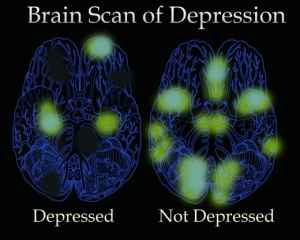 Clinical studies have proven NADH stimulates the body's production of the brain chemical called "dopamine." Dopamine has a direct, positive effect on many physiological functions including concentration, drive, up-lifting mood, strength, and coordination. Dopamine balances the body's appetite for food. Dopamine and its interaction with serotonin improves the body's sleeping abilities. Dopamine fights against the feelings of depression, the lack of concentration, the intense feelings of emptiness, guilt, and worthlessness.
Clinical studies have proven NADH stimulates the body's production of the brain chemical called "dopamine." Dopamine has a direct, positive effect on many physiological functions including concentration, drive, up-lifting mood, strength, and coordination. Dopamine balances the body's appetite for food. Dopamine and its interaction with serotonin improves the body's sleeping abilities. Dopamine fights against the feelings of depression, the lack of concentration, the intense feelings of emptiness, guilt, and worthlessness.
The brain needs to contain sufficient levels of NADH to produce dopamine. If cellular NADH levels are depleted, the brain will no longer function properly. It is NOT known, how NADH becomes depleted from the body. Today, a scientific breakthrough has enabled NADH to be manufactured in a stabilized form. A person can restore NADH cellular levels by taking a daily nutritional supplement. Higher NADH levels, means higher levels of ATP energy, as well as the brain chemical called dopamine. The same NADH used in the depression clinical study is available from this website or other high quality nutritional supplement stores. There are more than 90 NADH products on the market. Use ONLY stabilized form of NADH available (See this website's section called Let the Buyer Beware)
NADH is Mother Nature's way to provide relief from depression. Take a copy of this clinical study to your doctor or healthcare professional and discuss your options. The clinical study is yours to take. You can order the same NADH used in the clinical study from this website or other high quality nutritional supplement stores. A high quality FDA licensed laboratory environment is used to manufacture the NADH available from this website. It ensures that each and every tablet and lozenge is of the highest, professional grade standard. We are sure that a person taking NADH will feel many of the positive effects. As a matter of fact, we guarantee it! Try our NADH for 30 days and if you don't experience the positive effects -- return the unused portion for a full refund (less shipping and handling) no questions asked.
Read the Clinical Study (click on the link to download):

Clinical Study Finds a 93% Success Rate when taking NADH as a Anti Depressant
 Video Section:
Video Section:
Anti-depressant NADH is Used to Treat 205 Depression patients
Dr Birkmayer is making the presentation [01:45]
